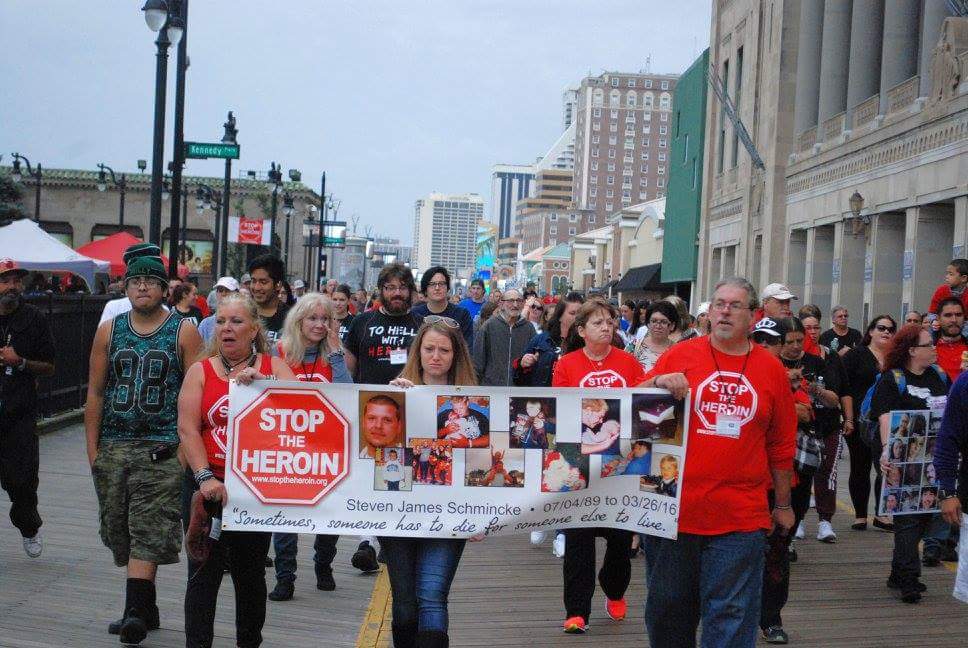Hometown Hero: Bill & Tammy Schmincke
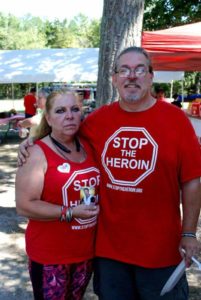
By Cindy Fertsch
Bill and Tammy Schmincke spent the day driving around Atlantic City, handing out coats, blankets, hygiene and nutrition kits to anyone who was in need. They also gave them a list of resources where they could go for help. Bill and Tammy know that addictions often lead to homelessness. This wasn’t a special day of volunteering for them. Rather, it is a lifestyle, a mission and a promise that they made to their son, Steven.
Steven Schmincke was only 27 years old, when he lost his life to an opioid overdose. In the midst of their pain and loss, Bill and Tammy made a promise to their son, that they would tell his story and use it to help others. They have kept that promise and in the 21 months since then, they have made remarkable strides through their organization, Stop the Heroin.
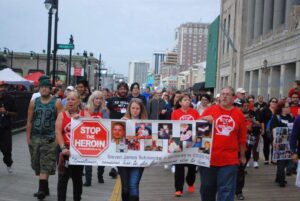
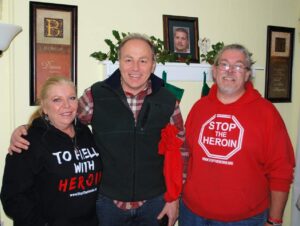
Stop the Heroin is a 501c3 nonprofit organization whose mission is to facilitate the transition from drug and alcohol rehabilitation to a sober living facility which supports recovering individuals as the they rebuild their lives. Stop the Heroin has funded and supported 156 graduates who otherwise would have had nowhere to go. Additionally they have opened a sober living home, named in their son’s honor, Steven’s Place which houses 12 men in Egg Harbor Township. Steven’s Place offers supported living while recovering addicts adjust and go out into the community and workforce, rebuilding their lives. This is sorely needed as most insurance companies will only cover drug detoxification with a very brief rehabilitation time. Even if the insurance company does cover more, it can be difficult to find a bed available and to navigate the complex steps needed to get there. Bill and Tammy take calls, texts and emails at all times and help in every way they can. They also have fought hard against the stigma that individuals and families with addictions have faced in the past. With two billboards, t-shirts and sweatshirts they sell and wear almost daily, a huge social media presence, and information tables at community events, Stop the Heroin has raised awareness about addictions and the opioid crisis tremendously.
Another area where Stop the Heroin is helping those impacted is creating supports for the many children the opioid crisis has impacted or left behind.Many of these children have lost one or both parents. They recently held holiday party for 11 local families that have lost one or both parents to addictions.
“I wake up everyday, so grateful for all the people and support that has been given to Stop the Heroin. We can’t take our foot off the pedal now. There is too much work to be done,” says Bill Schmincke. Stop the Heroin is planning two large scale events to be held in April. The first is the second annual Recovery Walk which invites the recovery community to come out and celebrate their time in recovery. It will be held on the Atlantic City Boardwalk, and this year, adding a 5k and 10k race. The second is a two day music festival to benefit Stop the Heroin, held at Proud Mary’s in Atlantic City. Many talented bands will be volunteering their time and skills to raise awareness and funding for Stop the Heroin.
“Everything we do is about my son,” said Bill. “ If Steven is watching I think he would be happy that we are helping people and he would say something like, ‘Yeah, that’s how my family rolls.’
If you would like more information, go to Stoptheheroin.org or facebook.com/stoptheheroin
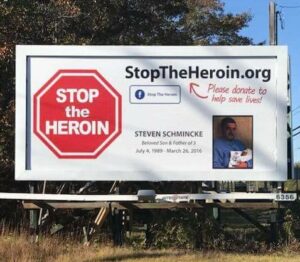
The Opioid Crisis is a drug epidemic that is nationwide. Opioids include illegal drugs like heroin, but also legal drugs like morphine and fentanyl, and many commonly prescribed painkillers like codeine, hydrocodone and oxycodone. Nearly 100 people die each day from addiction and overdose of these opioids, according to the Centers for Disease Control and Prevention. Opioid addictions most often begin with prescription drug abuse. When they are no longer available, the user will often turn to a cheaper alternative, heroin. A bag of heroin costs less than $10, less than a pack of cigarettes. The heroin’s low cost and accessibility crown the drug as the center of the addiction epidemic.

